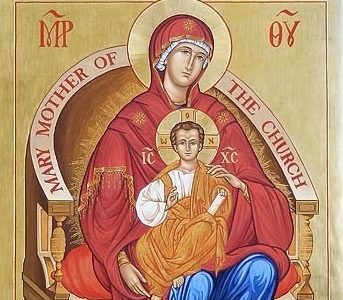Pope Emeritus Benedict XVI wrote one way we can combat scandal is through a greater reverence for the Eucharist: “The way people often simply receive the Holy Sacrament in communion as a matter of course shows that many see communion as a purely ceremonial gesture. Therefore, when thinking about what action is required first and foremost, it is rather obvious that we do not need another Church of our own design. Rather, what is required first and foremost is the renewal of the Faith in the Reality of Jesus Christ given to us in the Blessed Sacrament.”
Today’s saint spoke of the joy of communion about 300 years ago! St. Veronica Giuliani was a holy woman who became novice mistress and abbess of her convent. She also received the stigmata of Christ, which caused her humiliation. However, she experienced a profound communion with God and shared that in her diary: “While I was about to go to Holy Communion, I seemed to be thrown wide open like a door flung open to welcome a close friend and then shut tight after his entry. So my heart was alone with him—alone with God. … Love makes the heart leap and dance. Love makes it exult and be festive. … Love possesses it and gives it everything. Love takes it over completely and dwells in it. But I am unable to say more because if I wished to relate all the effects that my heart experiences in the act of going to Holy Communion and also at other times, I would never finish saying everything. It is sufficient to say that communion is a … mansion of love itself.”
Jesus blesses us with his presence and brings us to holiness by giving us himself! Would that we remember what that really means! We would be focused on Jesus, joy, and holiness, rather than scandal.




